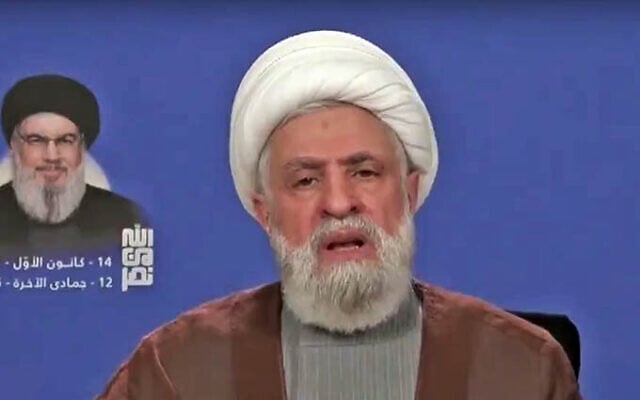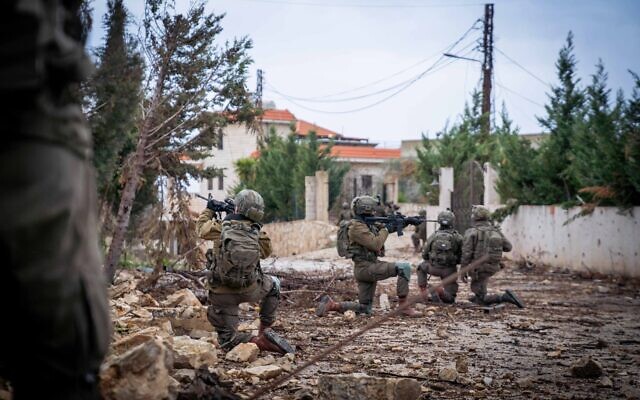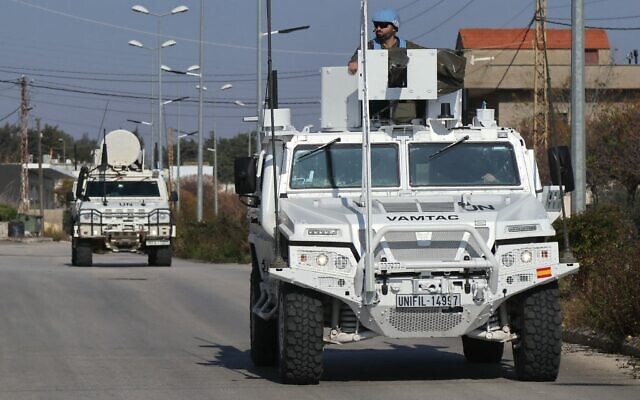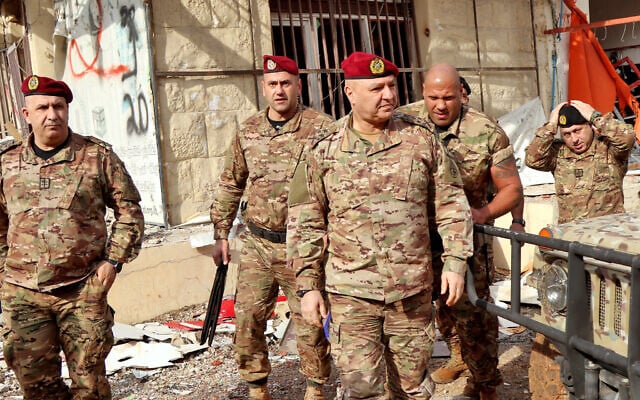Lebanese army officials have received “serious signals” that Israel could extend its presence in Lebanon for an additional 30 days beyond the 60-day withdrawal period stipulated in its ceasefire agreement with Hezbollah, a newspaper aligned with the terror group reported on Saturday.
According to the Al-Akhbar outlet, US military official Major General Jasper Jeffers, who is tasked with overseeing the ceasefire, recently sent a message to the Lebanese Armed Forces indicating that the Israel Defense Forces will decide whether to request the extension depending on if it can “fulfill its goals of ensuring the end of [Hezbollah’s] ability to carry out a preemptive attack.”
As part of the truce agreement signed by Israel and the terror group on November 27, the IDF is required to cede all of its positions in southern Lebanon to the LAF within 60 days. At the same time, Hezbollah is required to retreat north of the Litani River, some 30 kilometers (18 miles) from the border with Israel.
Within the 60-day withdrawal period, however, the IDF has continued to carry out strikes against Hezbollah operatives and infrastructure in south Lebanon. It has denied violating the terms of the agreement, saying that the strikes have targeted Hezbollah’s own violations.
Speaking to The Times of Israel last month, a military source confirmed that the IDF was gearing up for the possibility that troops would stay beyond the 60-day period as the Lebanese army is currently deploying too slowly to the southern Lebanon area, allowing Hezbollah time to regroup.
In addition to slow deployment rates, the Lebanese army is failing to attack Hezbollah targets when the opportunity arises. Nevertheless, the source said that while extending the length of the IDF’s deployment would test the ceasefire agreement, it would not necessarily collapse.
Lebanese army commander, General Joseph Aoun (C), visits the southern Lebanese village of Khiam on December 23, 2024, after the withdrawal of Israeli forces from the area under a ceasefire deal with Hezbollah. (AFP)
Hezbollah chief Naim Qassem warned on Saturday that the terror group’s “patience may run out” even before the 60-day window is up.
“There is no timetable that specifies the resistance’s work, and our patience is linked to the appropriate timing to confront the enemy,” Qassem said in a speech. “Our patience may run out before or after the 60 days, when we decide to do something that you will see directly.”
“In the past, Israel reached Beirut within days, but in the 2024 aggression, it was unable to advance more than a few hundred meters at the front edge. Israel was unable to advance because the resistance fighters stood firm and stood firm in the face of it,” he said
Israel did not seek to move beyond the border area in its recent ground campaign, saying it was acting only to eliminate Hezbollah infrastructure threatening communities in northern Israel.
“The enemy was forced to request a ceasefire because of the resistance’s capabilities, and we agreed through the Lebanese state,” claimed Qassem.

Hezbollah Secretary General Naim Qassem gives a televised speech on December 14, 2024. (Press TV screenshot: used in accordance with Clause 27a of the Copyright Law)
Israeli forces have so far withdrawn from two towns in southern Lebanon — Khiam and Shamaa, but according to the International Organization for Migration, they remain stationed in some 60 others, and around 160,000 Lebanese remain displaced.
Citing unnamed Israeli officials, the Ynet news outlet reported that although the option has been considered, no decision has been made about extending the IDF’s presence in southern Lebanon.
The decision will be made closer to the 60-day deadline, the report said, and will depend on whether or not the Lebanese army appears able to fulfill its part of the ceasefire agreement and regain full control over southern Lebanon from Hezbollah.
If the Lebanese army cannot meet the terms of the agreement, then Israel does not see a reason to withdraw its troops back across the border and believes that the United States, which brokered the agreement, would understand the need for an extension, the report added.
The war in Lebanon was sparked when Hezbollah, unprovoked, began firing at Israel on a near-daily basis on October 8, 2023, a day after fellow Iran-backed terror group Hamas stormed southern Israel to kill some 1,200 people and take 251 hostages, starting the war in Gaza.
Israel escalated the campaign against the terror group in September 2024, decimating its leadership, in a bid to end the persistent rocket fire that had displaced some 60,000 northerners.
Fighting came to a halt with the start of the ceasefire agreement on November 27, despite both parties frequently accusing the other of violating its terms.
Lebanon has accused Israel of repeatedly violating the ceasefire agreement and last week submitted a complaint to the UN Security Council alleging that Israel launched some 816 “ground and air attacks” between the start of the ceasefire and December 22, 2024.

IDF troops with the 769th “Hiram” Regional Brigade operate in southern Lebanon, in a handout photo issued on December 31, 2024. (Israel Defense Forces)
The complaint said that the attacks have hindered the Lebanese army’s efforts to deploy in the south and uphold its end of the agreement.
Israel has disputed this, and on Thursday said that fighter jets had carried out strikes on rocket launchers in south Lebanon only after its request for the Lebanese military to neutralize the launchers went unanswered.
On Saturday, the international peacekeeping body UNIFIL accused the Israeli military of destroying a blue barrel marking the border between Israel and Lebanon, as well as a Lebanese army observation tower near one of the UN observer force’s positions.
“This morning peacekeepers observed an IDF bulldozer destroying a blue barrel marking the line of withdrawal between Lebanon and Israel in Labbouneh, as well as an observation tower belonging to the Lebanese Armed Forces immediately beside a UNIFIL position there,” the observer force said.
UNIFIL said the IDF’s “deliberate and direct destruction” of the blue barrel and Lebanese army infrastructure is a “flagrant violation of Resolution 1701 and international law.”
“We call on all actors to avoid any actions, including the destruction of civilian property and infrastructure, that could jeopardize the cessation of hostilities,” the observer force added.
There was no immediate comment from the IDF on the incident.

United Nations Interim Force in Lebanon (UNIFIL) vehicles patrol the southern Lebanese city of Marjayoun, near the border with Israel, on November 29, 2024. (AFP)
In turn, Israel has accused Hezbollah of violating the ceasefire hundreds of times and has also complained to the UN Security Council. It has accused terror operatives of moving ammunition, attempting to attack Israeli soldiers, and preparing to launch rockets toward northern Israel among other things.
Israel, under the ceasefire agreement, is entitled to act against immediate threats posed by Hezbollah but must forward complaints about longer-term threats to the oversight committee comprised of representatives from the US, France, Lebanon, and the international peacekeeping force UNIFIL.
With both sides trading accusations, Channel 12 news and the Lebanese ad-Diyar newspaper reported on Friday that the main US negotiator of the deal, Amos Hochstein, will travel to Beirut early next week.
According to Channel 12, Hochstein’s visit is meant to ensure a smooth and timely transition in southern Lebanon as the IDF hands off to the Lebanese Armed Forces.


